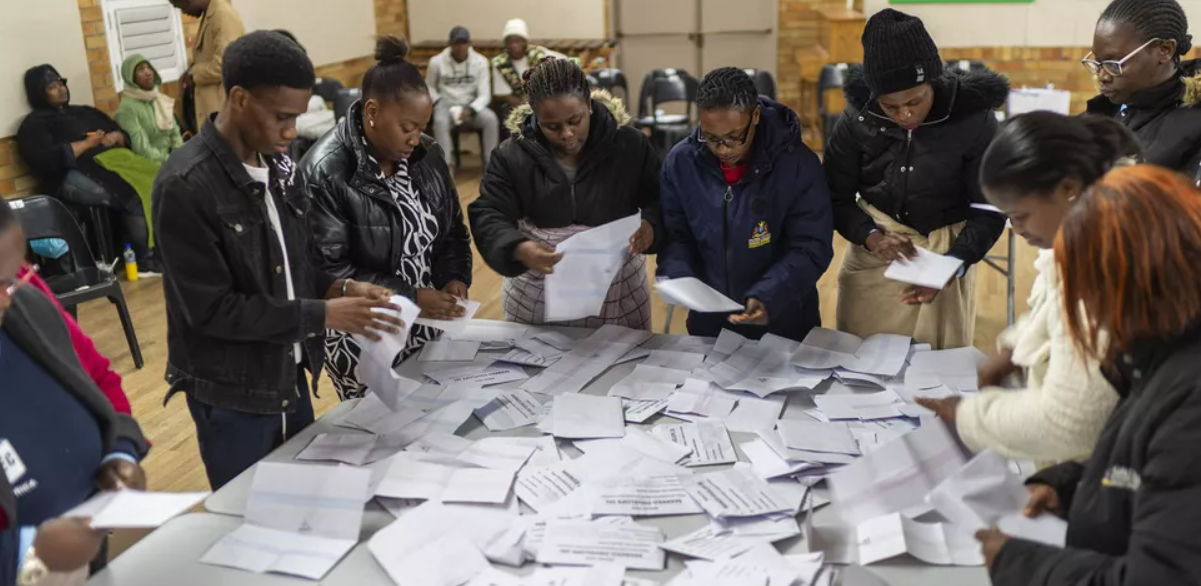After the recent elections, South Africa’s lawmakers will select a new president on Friday, a crucial moment in the country’s political landscape. In response to its first majority loss since 1994, the African National Congress (ANC) has begun talks with opposition groups in an effort to establish a unity government.
Important business, such as choosing a new speaker and deputy speaker, will also be handled during this legislative session. Ensuring that MPs be inaugurated and a president is elected within 14 days of election results is a constitutional duty, and the outcome of these appointments is anticipated to mirror the continuing discussions between the ANC and other opposition forces.
A total of 40% of the vote went to the African National Congress (ANC), 21% to the Democratic Alliance, and 15% to the newly formed uMkhonto weSizwe Party in the most recent national elections. The African National Congress (ANC) has chosen not to build a conventional coalition with a small group of political parties but rather a wide-ranging national unity government in reaction to its dwindling majority.
Nevertheless, the negotiations have exposed long-standing differences throughout the political spectrum in South Africa. Opposition to the planned unity government has been made by some parties, while support has been extended by others. While in Cape Town on Thursday, the ANC’s national executive committee will try to seal the deals made with these groups in preparation for an announcement that’s coming soon.
Joining the national unity government under ANC leadership is the objective of the Inkatha Freedom Party (IFP), the fifth-largest party in South Africa with 3.85% of the vote. The dedication to stability and the resolution of national difficulties through cooperative government was highlighted by IFP President Velenkosini Hlabisa.
But despite being a major election newcomer, the uMkhonto weSizwe Party has chosen not to be a member of the unity government. The party tried to halt the parliamentary proceedings and challenged the legitimacy of the elections, claiming major irregularities. The legislative session could go forward after the Constitutional Court rejected their plea, but their elected representatives still chose to skip it.
The elections have been certified as free and fair by the South African electoral commission and independent observers. Tensions between the second-largest party, the Democratic Alliance (DA), and the fourth-largest party, the Economic Freedom Fighters (EFF), have surfaced as a key impediment as the deadline for discussions approaches.
The opposition Economic Freedom Fighters (EFF) are opposed to working with the moderate Democratic Alliance (DA) because they are opposed to the EFF’s Marxist ideology and programs that seek to rectify past wrongs. In spite of the ANC’s best efforts, forming a national administration that includes all major parties has been difficult due to the ideological divisions highlighted by long-standing rivalry.
The ANC is also having trouble keeping its majority in provincial coalitions, so this trend is likely to continue there as well. The level of collaboration and ideological alignment among key political actors in South Africa will be determined by the outcome of these negotiations, which will shape the country’s political landscape.
Finally, the detailed agreements between the African National Congress and the opposition parties will determine the structure of government for the next term as South Africa gets ready to swear in its legislators and choose a new president. The results will show ideological leanings and political methods, which will impact measures that strive to fix the country’s economic and social problems.


















